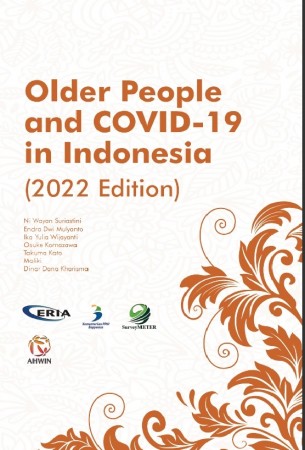The 2022 edition of Older People and COVID-19 in Indonesia reports on the second round of surveys conducted by ERIA, Bappenas, and SurveyMETER conducted a follow-up round of surveys, building on the findings that were published in the 2020 edition. This follow-up survey, conducted in November 2020, aimed to assess changes in the status of older people from July to November in the following areas: (1) the welfare of older people before and during the coronavirus pandemic, (2) the difficulties they faced, and (3) the changes in social assistance received by older people as a response to COVID-19, and it sought to (4) identify the most suitable policies to mitigate the impacts of the pandemic on older people based on the changes observed.
Results showed that some older people were still experiencing a decline in income in November 2020. The impact of the pandemic on food consumption changed from July to November. Fewer older people received social assistance in November 2020 compared with July 2020. Older people preferred cash assistance to in-kind assistance. Better access to health services led to more proper diagnoses so that more older people with physical health problems were identified. Moreover, older people’s mental health improved improved slightly over the survey period.
However, several respondents still had problems accessing healthcare facilities and had run out of medicines. The risk of social isolation decreased over the course of the pandemic and a declining trend was also observed in the number of beneficiaries of social support. Integrated care for older people, assisted by digital technology, is recommended to facilitate supporting older people’s needs with available services. It is also appropriate in a pandemic setting since it potentially accelerates service provision and reduces infection risk.


